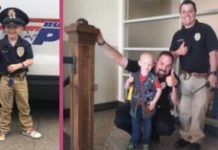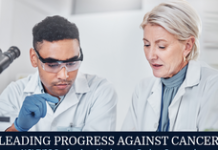
This post was first published on The ASCO Post, May 25, 2023. It has been edited for content. The ASCO Post, in partnership with the American Society of Clinical Oncology (ASCO), communicates news of evidence-based multidisciplinary cancer care to a broad audience of oncology professionals and ASCO members.
Jeff Dunn, PhD, AO, is President of the Union for International Cancer Control (UICC). He is also Chief of Mission and Head of Research at the Prostate Cancer Foundation of Australia, Professor of Social and Behavioral Science, and Chair of Cancer Survivorship at the University of Southern Queensland. He lives in Brisbane City, Queensland, Australia.
The irony is not missed on me. In August 2022, 2 months before I was to start my tenure as President of the Union for International Cancer Control (UICC), I was diagnosed with mantle cell lymphoma. My entire career over the past 30 years has been in the pursuit of improving global cancer control and survival outcomes for people with cancer, but none of that work prepared me to hear the words, “You have cancer.”
I had been feeling fatigued for several weeks before the diagnosis, but I thought it was from the lingering remnants of a bout with COVID-19. That August, as I was struggling to close the top button on my shirt collar, my first thought was that I had put on weight. But then I could see that the lymph nodes on the left side of my neck were swollen, and it dawned on me that something was wrong.
I got the news that I had this rare, aggressive type of non-Hodgkin lymphoma while perusing the shelves of my local hardware store. My hematologist called my cell phone and asked if we could talk about the results from the laboratory tests taken just days before. After giving me the diagnosis, he said he was planning an aggressive course of treatment, including an intensive chemotherapy regimen followed by an autologous stem cell transplant. But still, there were choices to make.
“What if I don’t have treatment?” I asked.
“With the disease progression you have, without treatment, you will be dead in 8 weeks,” he said.
Surrendering to cancer
There is a sense of gravity and darkness that accompanies a life-threatening cancer diagnosis, and I just had to accept the reality of the situation. No matter how much you research cancer, or talk to patients about it, or how familiar you are with the biology, sociology, and psychology of the disease, getting a cancer diagnosis provides a unique perspective on the fragility of life. It was quite a thing to contemplate.
Those of us who care for people with cancer often hear our patients talk about the loss of control they feel after a cancer diagnosis and the need to surrender to the medical system, and it is so true. You must surrender into the system and the uncertainties ahead to survive, and all your perfect plans for the future just go out the window.
Unlike many other people who receive a cancer diagnosis, I didn’t look up information about mantle cell lymphoma and its survival rates. I just decided to put my faith in my oncology team and the science behind the most effective treatment and let whatever was going to happen, happen.
Celebrating 2 birthdays
Within days of receiving my diagnosis, I was in the hospital to begin the arduous preparation for my transplant. On December 6, 2022, I had an autologous stem cell transplant, which has put me in complete remission with no evidence of disease, and I’m on maintenance therapy for the next 3 years. I consider December 6 to be my second birthday, my first being August 31. I’m planning on celebrating both birthdays this year.
Advocating for others
Although getting a cancer diagnosis just as I was about to start my role as president of the UICC delayed my transition into the job, it has emboldened my resolve to make sure the next 2 years are meaningful and productive for me, the UICC, and the millions of survivors we serve around the world. My story is among the nearly 20 million other stories of people who will be affected by cancer globally this year. I want to make a difference for them. Through my work at the UICC over the next 2 years, I hope to close the gap in access to care that exists for many people with cancer and improve survival rates, especially for those living in low- and middle-income countries, where as many as 70% of cancer deaths occur.
Appreciating life
On a personal note, I admit that nearly 9 months after my diagnosis, I’m still working through the impact of cancer on my life. I still am easily fatigued and need to take frequent rest breaks. I also must be careful about being out in large crowds because of my compromised immune system.
Cancer has also made me more thoughtful about my life choices in general. When you are faced with a life-threatening disease, you don’t want to waste time, and I’m more careful now about how I choose to spend my time and who I spend it with. It’s more important to me now that I not only take better care of myself but better care of the people around me as well, especially my wife and children.
As I write this, I’m feeling optimistic that I’ll be around for a long time. But that hopefulness is a step-by-step process that changes day by day. I’m learning what it means to be a cancer survivor, incorporating all the usual uncertainties of life with the uncertainties of this disease, and appreciating it all.








